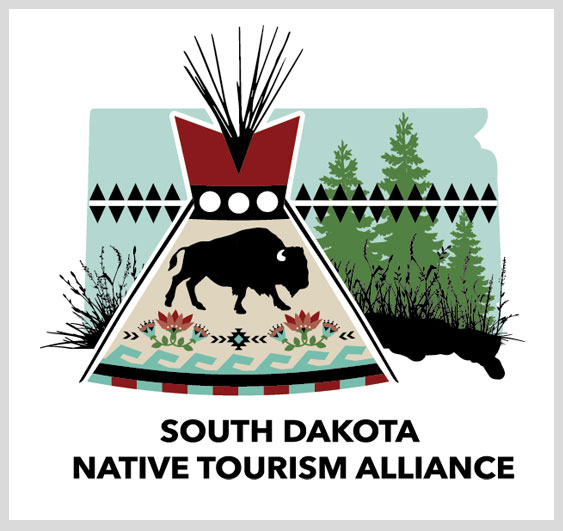Who we are
About the South Dakota Native Tourism Alliance
The South Dakota Native Tourism Alliance (SDNTA) is a nonprofit alliance of South Dakota’s Tribal Nations. Through collaborative efforts with tribal communities, SDNTA develops sustainable tourism initiatives, fosters economic development, and shares authentic cultural experiences with visitors, ensuring the vitality and authenticity of Native American tourism in the region.
Our Purpose
SDNTA elevates indigenous voices and help the Oceti Šakowiŋ Oyate thrive.
Our Mission
SDNTA builds capacity for tourism entrepreneurs, enhances cultural learning opportunities, and unifies tribal tourism across South Dakota.
Our Vision
We envision a bright future where our Lakota, Dakota, and Nakota people are empowered to share their worth, beauty, and living history to the world.

History
To assess the potential for tourism, in 2019, George Washington University International Institute for Tourism Studies brought together 45 representatives from all nine federally recognized Tribal Nations in South Dakota— along with local, state and federal partners—to form an ad hoc network: The South Dakota Native Tourism Alliance (SDNTA).
Based on evaluation of the potential tourism market and the cultural and natural resources found throughout the state, the SDNTA members concluded that cultural heritage tourism indeed had the potential to drive economic opportunity, community development and the protection of natural and cultural resources.
Over a 12-month period, which involved more than 65 local stakeholders in a participatory planning process—facilitated by the George Washington University International Institute of Tourism Studies and funded by the Department of the Interior’s Office of Indian Energy and Economic Development— the group produced the Native American Tourism Development & Management Plan South Dakota 2020-2025.
In 2024, SDNTA became a formal nonprofit organization governed by a Board of Directors representing each of the nine Tribal Nations of the Oceti Sakowin Oyate—the “Seven Council Fires” of the Lakota, Dakota, and Nakota people. Our work is rooted in traditional values and informed by leaders in Native tourism, education, economic development, and culture.

